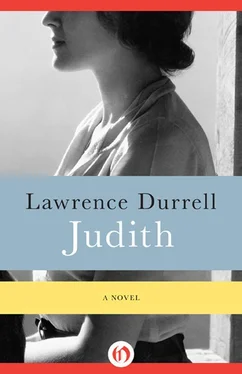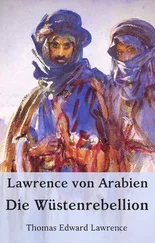In 1921, the year following the commencement of the British administration in Palestine, Winston Churchill, who had just become Colonial Secretary, declared:
It is manifestly right that the scattered Jews should have a national centre and a national home to be re-united and where else but in Palestine with which for 3,000 years they have been intimately and profoundly associated? We think it will be good for the world, good for the Jews, good for the British Empire, but also good for the Arabs who dwell in Palestine… they shall share in the benefits and progress of Zionism…There really is nothing for the Arabs to be frightened about…No Jew will be brought in beyond the number who can be provided for by the expanding wealth and development of the resources of the country.
52
There is a telling clue in Herzl’s 1896 manifesto, The Jewish State , as to the strategic importance of a Jewish homeland in Palestine: ‘We should there form a portion of a rampart of Europe against Asia, an outpost of civilization as opposed to barbarism’. 53Herzl was perhaps recognising what would come within a couple of decades to be called ‘geopolitics’ — the relations between states based on geographical location — which in our own time has provided us with ways of understanding strategies relating to the balance of power in regions such as the Near and Middle East. As early as 1915, the British prime minister H. H. Asquith had referred to ‘the carving up of the Turks’ Asiatic dominion’, 54and, as the Ottoman empire crumbled as a side-effect of the First World War, distribution of lands previously under Turkish rule became a priority for the victors.
It has been argued that Britain had no strategic benefit, at the time of the original Mandate, for undertaking it. 55And in 1945, perhaps in an effort to sustain the argument for British withdrawal, Churchill said he was ‘not aware of the slightest advantage that has ever accrued to Great Britain from this painful and thankless task’ 56— a position not inconsistent with his view of the situation over twenty years earlier (quoted above).
Nevertheless, Palestine represented an important — if not vital — land bridge to Arabia and India, and in the same year that saw the ‘carving up’ of the Ottoman Empire, the military correspondent of the Manchester Guardian newspaper opined that ‘the whole future of the British Empire as a Sea Empire… depended upon Palestine becoming a buffer state’. 57A. J. Sherman’s observation, that ‘British occupation of Palestine was undertaken in full awareness of geopolitical realities’ 58cannot be easily dismissed: it leads us towards the essential element which is familiar to everyone today: oil. In 1921 a British government minister had foreseen this: ‘while, in present circumstances, Palestine was of no real strategic value, it was desirable to keep it. Who knows, maybe one day oil would be discovered there’. 59With the increasing awareness of oil exploration in Iraq in the 1930s by companies such as the IPC consortium of British Petroleum, Shell and Gulbenkian, geopolitics entered a crucial phase, which Durrell effectively introduced into Judith : Judith’s father had been working on a turbine which the Jews (soon to become Israelis) might turn to advantage:
“Oil is what we have in mind,” said the Professor. “It is also what the Nazis had in mind; they had plans for the Rumanian oil-fields which would have been helped by this idea. By the same token, the British, Americans and Arabs would all be profoundly interested.” (p. 60)
And when Judith and Aaron argue about the intensity of the Zionist drive towards statehood and the significance of the United Nations vote on partition, oil again features as a factor in the geopolitical debate:
“And what of the Arabs?” she said harshly. “They will torpedo your vote. You know they will. Who is going to sacrifice good oil to their displeasure?”
“The risk is there — we must take it. It is the only way.”
“It will end with a massacre.”
“That we can face up to as the worst extremity; but we sabras
60
are not going to stretch out our little white throats to the Arab’s knife. But we know that in the longest run we must live with them, cooperate with them. At the moment British oil interests won’t let us. That’s the point.” (p. 134)
The Mandate, officially approved on 22 July 1922 by the League of Nations (the forerunner of the United Nations), came into force on 29 September 1923, although the British had been in occupation of Palestine, militarily and administratively, since July 1920, in the wake of General Allenby’s capture of Jerusalem from the Turks in 1917. The Mandate empowered Britain to govern Palestine, with explicit responsibility to support the establishment of a Jewish national home, while (an echo of the Balfour Declaration) safeguarding the rights of the existing population. It also provided for the introduction of self-government, which both Jews and Arabs would reject. It has been argued that these three imperatives were incompatible, 61and, given the increasing suspicion and hostility between the indigenous population and the newcomers, it seems that the impossibility of carrying out the terms of the Mandate may have contributed substantially to the ambivalence and lack of clear direction on the part of the British. ‘One senior official…estimated that the British had never in fact had a policy for Palestine, “nothing but fluctuations of policy, hesitations…no policy at all” ’. 62Durrell had given an indication of his own feelings on this point in The Alexandria Quartet when his character Pursewarden, based in Egypt, says, in relation to British activity in the Middle East as a whole, that ‘it is neither coherent nor even a policy — at any rate a policy capable of withstanding the pressures which are being built up here’. 63
Today, with growing momentum towards long-deferred statehood for the Palestinians, it is perhaps surprising that partition was not on the table as a condition, rather than an option, from the beginning: as David Fromkin observes,
Since the Balfour Declaration contained no geographical definition, Churchill’s advisers concluded that Britain could fully reconcile and fulfil her wartime pledges by establishing a Jewish National Home in Palestine west of the Jordan and a separate Arab entity in Palestine east of the Jordan.
64
While partition remained unacceptable to both parties, and particularly to the Arabs, it was the only possible means of carrying out the terms of both the Balfour Declaration and the Mandate.
There are two points in Judith where Durrell seems to have nodded — to have condensed the historical events of two or three years into a much shorter timescale. For example, there are two references to the Jewish strategy of referring the questions of the Mandate and partition to the United Nations — one by Professor Liebling (p. 61) and one by Aaron (p. 130). However, both these statements were made in early 1945 according to Durrell’s chronology, and although the United Nations had been mooted since 1942 and came into existence in October 1945, it did not hold its first assembly until January 1946. No doubt, if Durrell had revised Judith for publication, such anachronisms would have been corrected, as, perhaps, would have been the fact that both Liebling and Aaron employ the same expression: ‘to bounce’ the British out of Palestine and into the United Nations.
But the most glaring example of a ‘seacoast of Bohemia’ error is in Durrell’s depiction of the Syrian, Daud, as a ‘prince’ and Daud’s references to the ‘King’ of Syria: since 1936, Syria had been a republic, although its independence was only recognised internationally in April 1946. Again, this would no doubt have been noticed if Durrell’s typescript had been submitted to his principal publishers, Faber & Faber; I have preferred to let it stand.
Читать дальше












